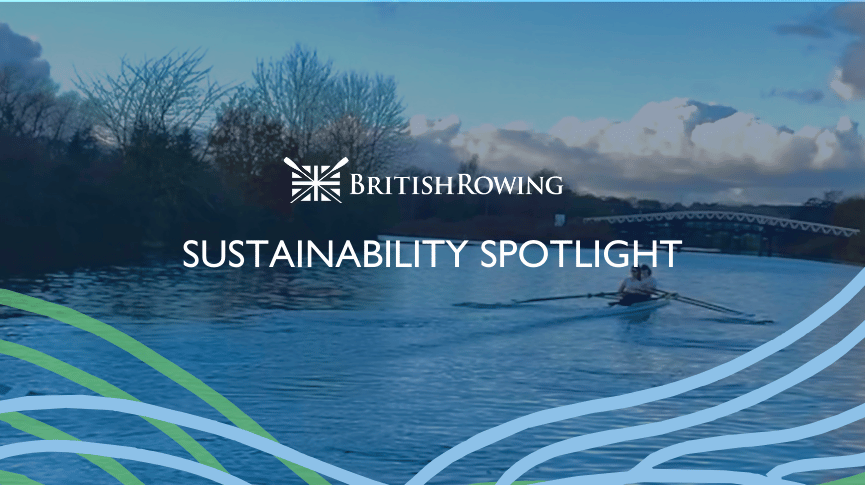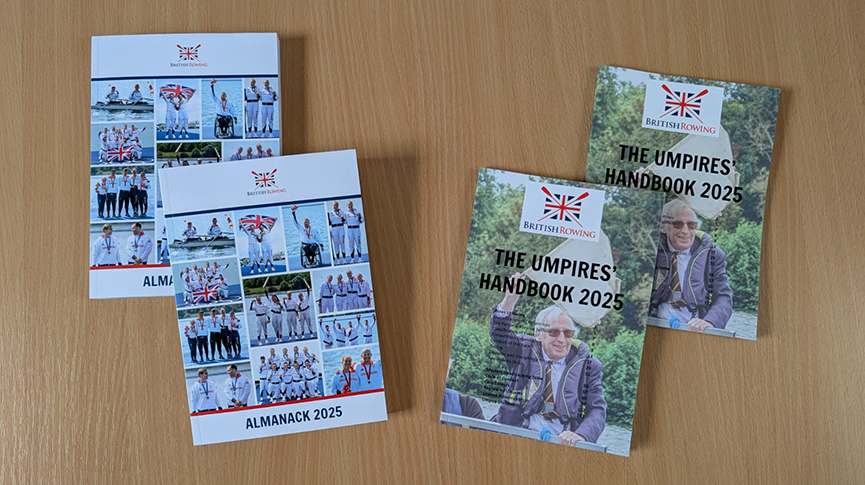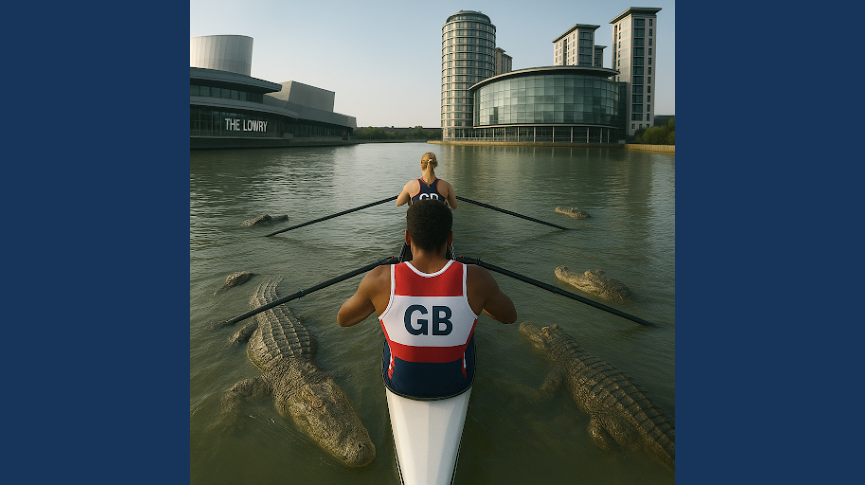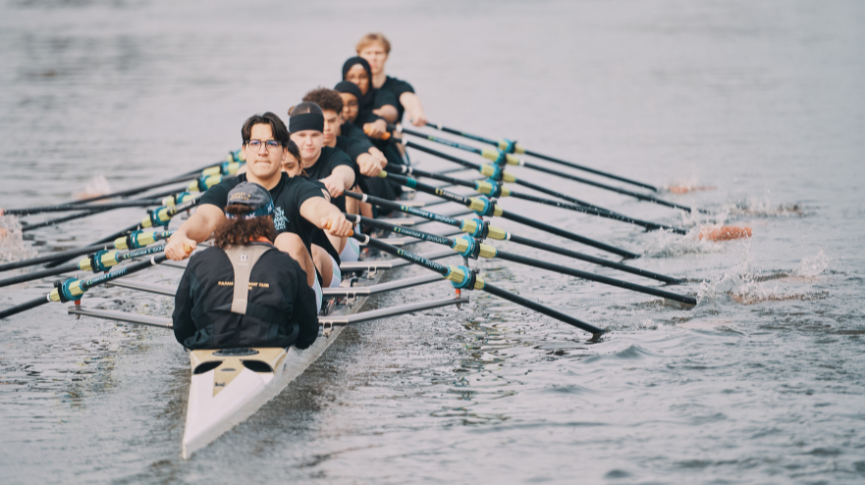World Coastals: bronze for GB quad as rowers ride wave of success
There were thrills, spills and bucketloads of beach bonhomie at the World Rowing Coastal Championships in Portugal last weekend. Nick Hartland reports
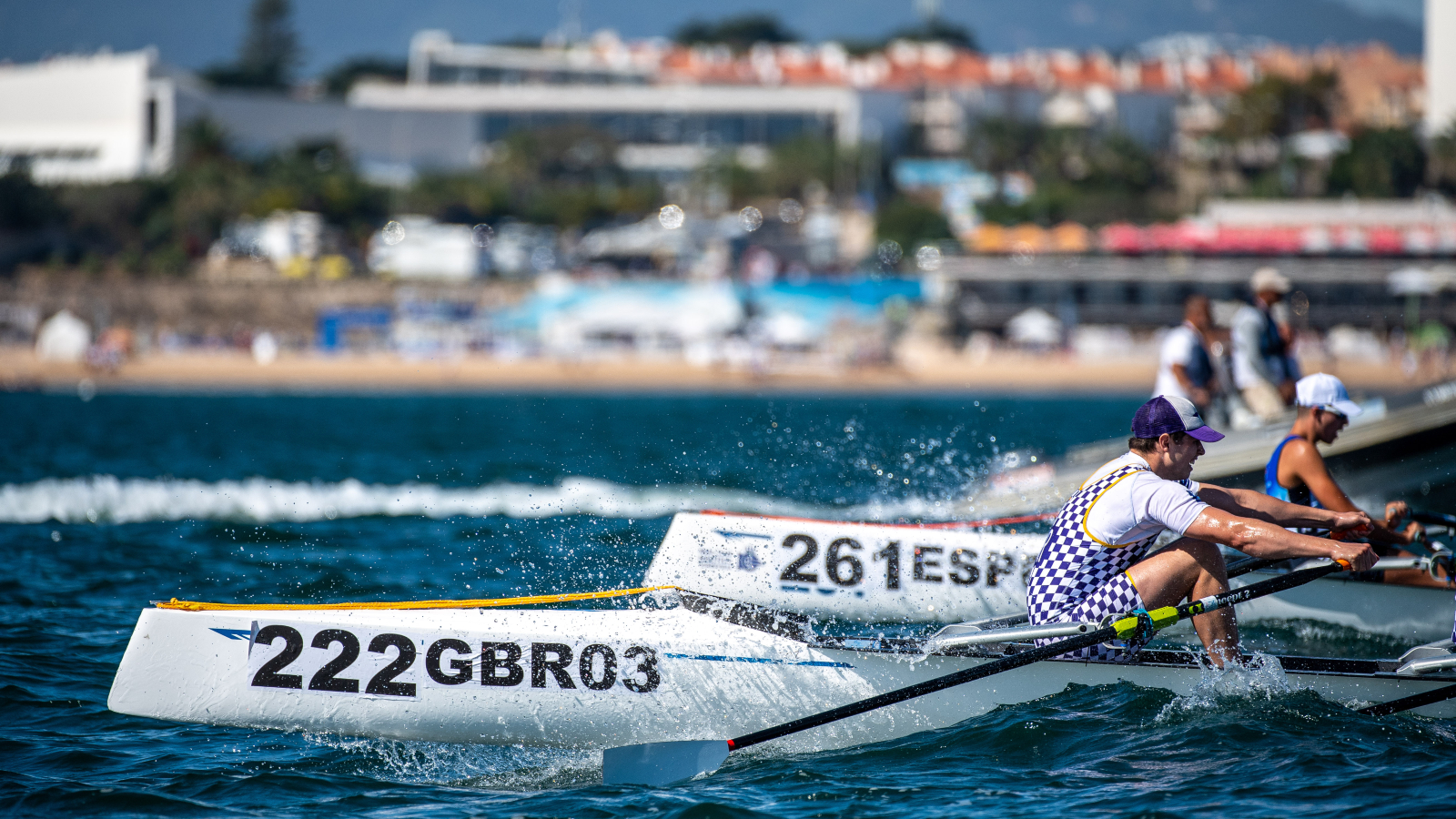
Close racing at the World Coastals (c) World Rowing / Benedict Tufnell
Incredible racing off Lisbon harbour at the World Rowing Coastal Championships saw more than 700 rowers from 34 nations ploughing through metre-high ’short-chop’ swells beneath the imposing São Julião da Barra Fort, whetting the appetite for 2022’s home-water event in Saundersfoot.
Fresh from Tokyo triumph, GB’s Jack Beaumont was back on the podium in Oeiras with his UL Tyrian men’s quad scull, taking a battling bronze after a first-buoy buffeting. Racing out towards a former island jail, no prisoners were taken when the 20-boat A finals made a right-angle turn 1km offshore, with the surging side-on tide leaving rowers literally ‘oar-struck’ in crashes, bashes and capsizes.
Eleven boats out of a 38-strong British fleet made the 6km medal races, including UL Tyrian women’s quad Alessandra French, Sara Parfett, Victoria Opitz, Molly Bruggeman and Louise Cox with a fighting fifth, and Exmouth Rc’s Will Loftus sixth in men’s singles.
“It was pretty wild,” said Olympic finalist Emily Craig after a ‘rollercoaster’ ride steering Tokyo quads medallist Beaumont, GB squad mates Matt Rossiter and James Fox and Tyrian club-mate Richard Clarke to bronze behind Ukraine and Czech boats – as she uniquely became a world rowing and coxing medallist.
“We got squeezed onto the first buoy and went from second to sixth before finding space. But the heat was worse – we got T-boned by the US, with three more boats piling in.
“I got hit by blades, lost the rudder and I’m covered in bruises. I thought the rowing would be physical, but didn’t think I’d be pushing boats off myself!
“In the final, I couldn’t see the second buoy, waves kept breaking over me. You just had to try and get blades in, something on it and not crab.
“Sometimes bow’s blades were out while stroke was deep under water, other times blades were in one side, not the other.”
The onshore wind and turning tide made the long coastline second leg “a game of survival”.
“You had to tough it out,” said Emily. “We sort of realised it’s more about hips and back than catch, and on better water inshore we finally managed a few technical calls.”
Hitting the beach, bowman Clarke then got smacked in the face by his handle, chipping a tooth, before sprinting to the finish.
“Rich still thought it worth it for a bronze,” said Emily, happy to have experienced such a ‘laid-back fun and friendly regatta’.
“Blue sky and a beach helps, but it was a great way to give something back to our club and reconnect.”
“You’re up against the elements, that’s the challenge and thrill”
Exmouth sculler Will Loftus steered clear of ‘carnage’ in his first worlds, as defending Spanish champion Adrian Miramon Quiroga and another sculler capsized and Dutch Olympic quads champion Koen Metsemakers got trapped in a first buoy pile-up, to finish sixth in the single sculls.
Will lost his job as a pilot when Flybe collapsed in March 2020, and coastal rowing has been a welcome motivator. Read more about Will and Exmouth Rowing Club’s year here.
After racing at the Worlds, he said: “I’m chuffed. You’ve got to think your way round with the wind, tide and waves, so I kept wide, avoided the melee and I’m looking back at the world champion in the water and the Olympic champion stuck,” he said.
“Then things got really rough and you just had to lay into it. But for the Spanish guy to get back in and come back through for bronze was awesome.”
“I’m completely sold on coastal,” added Will, 27, who started out flat water rowing as a youngster at Beccles RC. “You’re up against the elements, that’s the challenge and thrill. You have to respect the sea and work with it – you can never tame it. It’s a great leveller.
“One wave even knocked both blades out of my hand. The boat’s always moving under you, so I just tried to stay loose, keep a strong core, with a soft catch but a good leg drive, trying to keep things as smooth as possible, even when you’re two foot down one side.”
There was also sportsmanship amid the rough and tumble, Tokyo medallist Kjetil Borch and his Norwegian Olympian partner breaking a blade 200m into their doubles final, only to be lent one by the similarly stricken Belgians.
They finally finished 12th, just behind GB Olympic finalist Oli Cook and Tyrian partner Patrick Boomer in ninth, with Bexhill/Deal’s Mark Mitchell and William Dennis 17th.
The latter were clobbered with blades on the turn, the commentator noting “they won’t be pleased about that!”
Christchurch RC’s Clare Jamison and Kath Coleman-Jones were ninth in W2x, with Exmouth RC’s Anna Childs and Judith Schulz 16th and Dolphin RC’s Andrea Davies and Louise Florence 18th.
The A finals were raced around an eight-buoy course introduced beach starts, with 20 boats lined up on the water’s edge and rowers jumping in and going on the klaxon – or earlier, with several red flags, 10-second penalties and restarts.
Racing out to sea and turning along the coastline, competitors then turned closer to shore for a ‘chicane’ route home.
“It was great to see so many new GB faces here, including Olympians, and they all loved it”
GB Olympian Emily Ford and Tyrian partner Oliver Stephens were 13th in Mxd2x, where five boats went the wrong side of the first buoy, and the Christchurch/Exmouth/City of Bristol M4x+ 17th, matched by Exmouth RC’s Marie Guingouain in W1x.
There was also M4x+ B final victory for Tyrian in a GB 1-2 from Bexhill with seven British boats racing, while Dover RC’s Mathilda Johnston and Maria Burrows placed third (23rd) in W2x.
Rowers were ’shaken’ and ‘stirred’ on the water, but there was definitely a ‘licence to chill’ shoreside, with big cheers for every returning boat, and rowers high-fiving each other in the finish pen as an army of volunteers cleared craft safely out of the way in record time.
Although Will says ‘coastal is a bit under the radar’, he thinks next year’s event will be a ‘fantastic showcase’ to get people involved.
“It was great to see so many new GB faces here, including Olympians, and they all loved it.
“The atmosphere was fantastic. You take racing seriously… especially with a Swedish ex-world champion one side on the start and a Spanish international the other, and a big fight for that first buoy.
“But when everyone’s gone through horrid conditions, there’s great respect. Everyone was ready to chat, give advice and share experience.”
Rachel Dulai, race director of the 2022 Worlds in Pembrokeshire, gave a call to oars, saying: “You’ll have a warm Welsh welcome. We’re going to have cheering points down the bank along the course which follows the coast.
“Everyone is looking forward to you arriving… they can’t wait to welcome you to their pretty village.”
And event manager Sam English added: “They will be very different conditions, the beach is very shallow, so do your homework and get training and prepare for something a little different.”
The World Coastals are coming home!
The 2022 World Rowing Coastal Championships will take place at Saundersfoot in Wales from 7-9 October, with the Beach Sprint Finals on 14-16 October. Sign up to the mailing list here to hear more about the event and volunteer opportunities.


